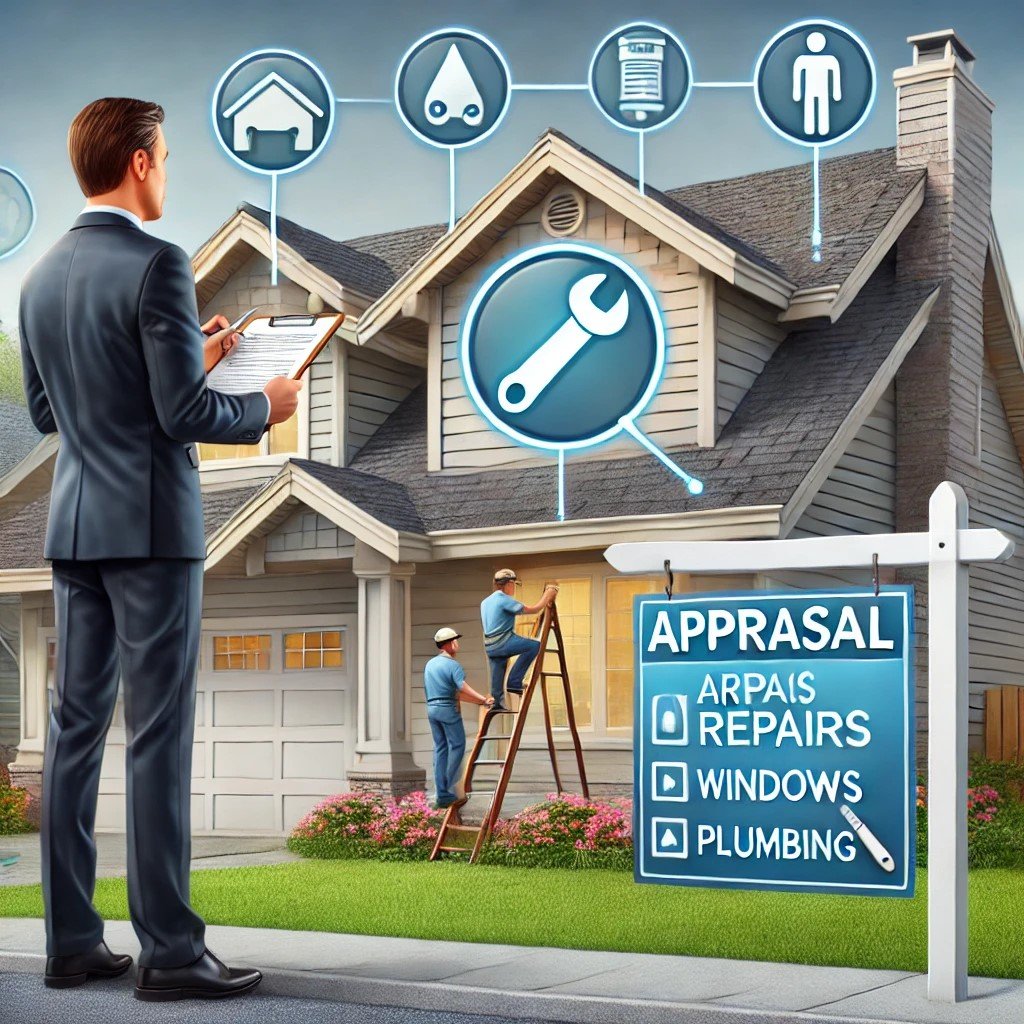When Can an Appraiser Require Repairs Before a Home Contract Can Close?
Buying a home can be an exhilarating yet complex journey. Beyond the excitement of choosing the perfect property and making an offer, buyers and sellers alike face several critical steps before the contract can close. One such step involves the home appraisal. While appraisers are primarily tasked with determining a property’s value, they sometimes identify repair requirements that must be addressed before the loan can proceed. Understanding when and why an appraiser might call for repairs can help both buyers and sellers avoid potential delays and ensure a smooth path to closing.
Why Do Appraisers Require Repairs?
An appraiser's primary duty is to assess the home's value to ensure it aligns with the amount of money being borrowed. However, if certain conditions in or around the home could impact its safety, livability, or structural integrity, the appraiser may flag those issues for immediate repair. These conditions are often related to **health and safety** or **structural stability** and can vary based on the loan type (conventional, FHA, VA, USDA).
Lenders depend on appraisers to catch these issues to protect their investment. If a major problem is discovered after the sale, the home’s value could plummet, leaving the lender with insufficient collateral in case of default. This is why lenders usually won’t move forward until required repairs are completed.
Common Repairs Often Required by Appraisers
1. Roof Repairs and Leaks
- A compromised roof can lead to significant issues, including water damage, mold, and structural problems. If an appraiser notices leaks or visible roof damage, they may require repairs to ensure the roof is sound.
2. Electrical Issues
- Exposed wiring, outdated panels, or faulty outlets are red flags that can jeopardize safety. Appraisers will typically require these repairs to prevent hazards like electrical fires.
3. Plumbing Problems
- Leaky pipes, lack of hot water, or non-functional plumbing can impact the home’s livability. In such cases, appraisers may require plumbing fixes to ensure the water supply is safe and reliable.
4. Broken Windows and Doors
- Cracked or broken windows aren’t just unsightly; they can also pose safety risks. Appraisers may require these to be replaced or repaired, especially if they contribute to energy inefficiency or security vulnerabilities.
5. Foundation or Structural Concerns
- Visible cracks, settling, or other structural issues can indicate foundational problems. Since these can drastically reduce a home's value, appraisers will typically require an assessment and repairs if needed.
6. Health Hazards
- Mold, asbestos, and lead-based paint are examples of health hazards that appraisers may require to be addressed. FHA and VA loans, in particular, have strict guidelines about removing these types of hazards.
Loan-Specific Repair Requirements
Different types of loans have varying requirements for repair-related appraisal issues. Here’s a quick breakdown:
- FHA Loans: The Federal Housing Administration has rigorous standards regarding property conditions. FHA appraisers focus heavily on safety and habitability, so they’re likely to require repairs if the property has health, safety, or structural concerns.
- VA Loans: The Department of Veterans Affairs imposes Minimum Property Requirements (MPRs) that cover everything from electrical safety to pest control. VA appraisals are known to be strict, and they will require repairs on any issue affecting a veteran’s comfort and safety.
- USDA Loans: Similar to FHA and VA loans, USDA appraisals involve specific property standards, especially in rural areas. Properties must be structurally sound, with adequate water and septic systems.
- Conventional Loans: While generally more flexible, conventional loan appraisals still flag major issues affecting a property’s marketability or safety. The lender has the final say on repair requirements, often based on the appraisal report.
What Happens After an Appraiser Calls for Repairs?
When an appraiser requires repairs, it’s usually the seller’s responsibility to complete them. The buyer and seller will often negotiate who handles each repair and how costs are divided. Once the repairs are completed, a reinspection by the appraiser may be needed to confirm they meet the required standards.
In some cases, if repairs cannot be completed before closing, a lender might allow for an escrow holdback. This involves setting aside a portion of the funds to cover repairs after closing, though this option depends on lender approval and is often limited to minor repairs.
How to Prepare and Avoid Delays
For sellers, a pre-listing inspection can help identify potential issues an appraiser might catch, allowing you to address them before listing the home. This proactive approach can speed up the process and make your home more appealing to buyers.
For buyers, understanding the potential for appraisal-related repairs can be valuable, especially when considering properties that may have visible issues. Your real estate agent can help negotiate terms with the seller, especially if repairs are likely to be required.
Conclusion
While appraiser-required repairs may feel like an unexpected hurdle, they serve to protect both the buyer’s and lender’s interests by ensuring the home is safe and habitable. By understanding when these repairs are likely to come up and planning for them, you can navigate the appraisal process more smoothly and reach closing with confidence.

